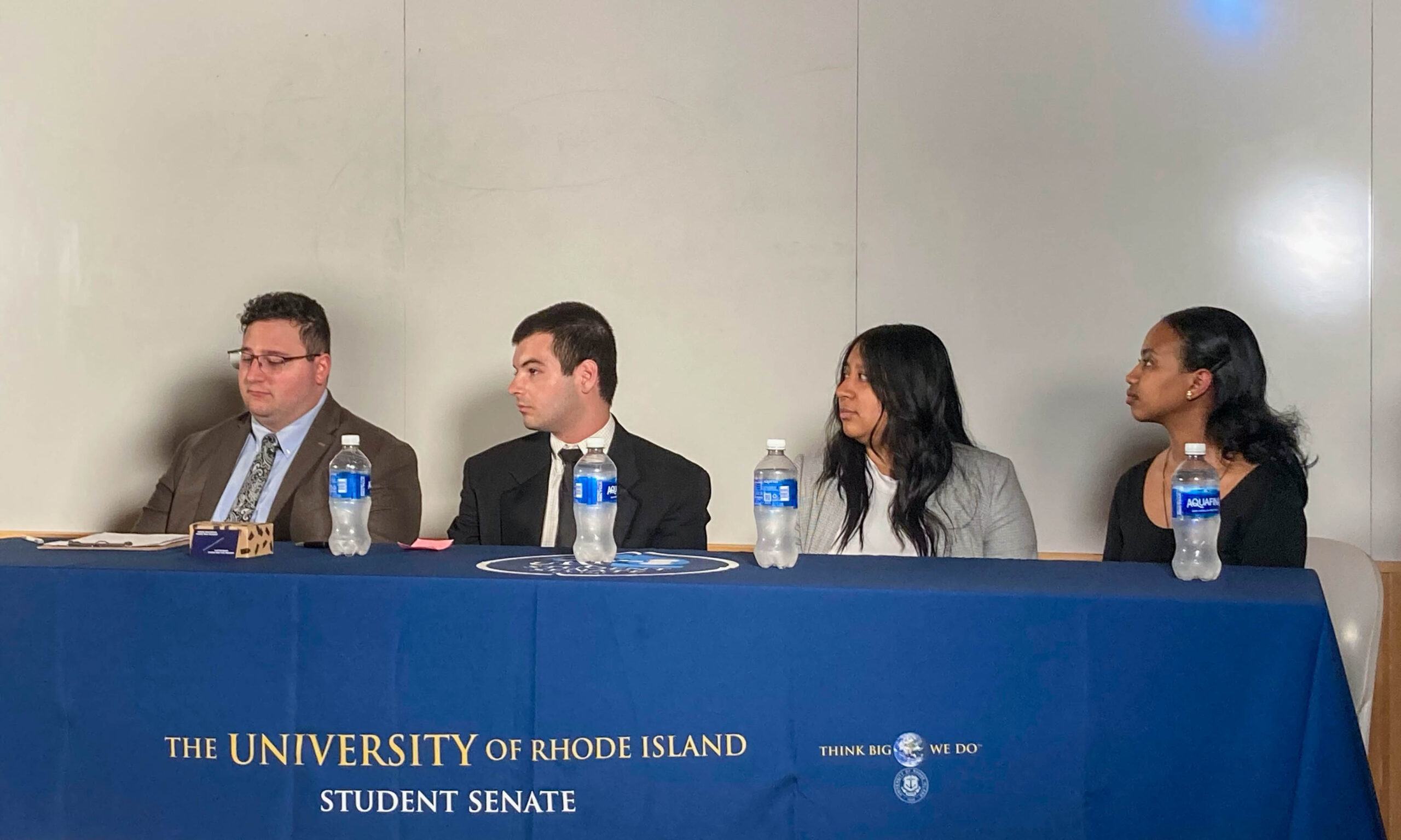The University of Rhode Island’s Office of Admissions announced that high school students applying to the University will not be penalized for walking out of school to protest gun violence.
“The University of Rhode Island will not penalize applicants for engaging in peaceful protests related to gun violence” was posted URI’s official Facebook page on Feb. 26.
When asked why the University chose to make this announcement, Cindy Bonn, dean of admissions, said, “We feel strongly that students that are using their constitutional right to protest peacefully should be given the opportunity and we should respect that.”
After hearing reports of high schools penalizing students who participated in walkouts, admissions began discussing announcing the policy as early as the Wednesday after the shooting. Bonn and her department had also discussed the matter with URI Communications. The Office of Admissions had to receive approval from the University president and provost before they could officially release the statement. Bonn also said that many alumni inquired about the possibility of URI making a statement, influencing the decision.
URI is far from the only college to announce this admissions policy. According to Bonn, she could not name a single college that announced that they would definitely penalize students for walking out.
“It’s difficult to make overarching statements about disciplinary issues, but in this case we felt that it was important to join as a community of higher education and make this decision,” Bonn said.
Although admissions wrote the Facebook statement in response to the nationwide movement against gun violence, Bonn said the protection could apply to other kinds of peaceful protests.
“This was specifically in response to the current movement related to the Parkland situation in Florida, so that particular statement we included ‘protests related to gun violence,’ but we would certainly consider it in other circumstances as well,” she said.
Bonn said that this year’s protest and the Office of Admissions response is a unique experience for her.
“I’ve been in admissions for 35 years, and this is the first time this has come up as an issue shared by the higher ed community,” Bonn said. “We’ve spoken up in support of things. We’ve supported students who faced severe weather issues and couldn’t take their SATs, so we were soft on deadlines. After 9/11 I remember sensitivity around application deadlines. But nothing as specific as this when related to protests.”
Ultimately, admissions considers many factors when admitting students and decides the weight of discipline records on an individual basis.
“We review application and treat every applicant as an individual, so when there are disciplinary infractions, we read carefully the student’s statement, the school counselor will sometimes have more information to add, so we consider every infraction in a very individual way and make determinations based on the individual,” said Bonn.
Student response to the new policy has been generally positive.
“I think it’s good because you have the right to protest if you want to, so the university shouldn’t penalize you for expressing your opinion about this topic,” undergraduate student Nicholas Cooper said.
Another student, Alexia Martins, said that colleges should encourage students’ freedom of speech in multiple areas, especially since critical thought is such a huge part of higher education.
“People should have the right to protest what they want and they should extend that to more than just gun control,” Martins said.



